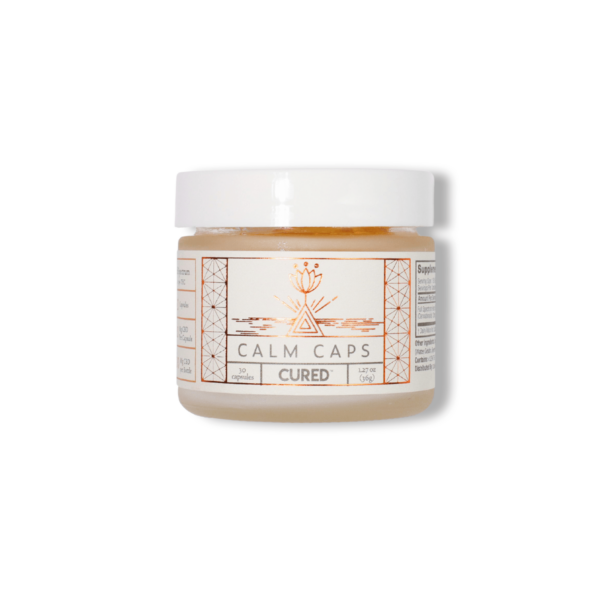From minor challenges to major crises, stress is undoubtedly a part of today’s face-paced, yang society. While we know how much it can impact our everyday life, do you know how to manage stress yourself? Whether you suffer from work stress or have excessive stress just from daily life, this article can help you develop healthy habits and provide relaxation techniques that can assist you in managing your symptoms.
What if we told you that 75% to 90% of all doctors office visits are related to conditions caused by stress? So, the question begs, how exactly does stress negatively affect our health in so many ways? It primarily boils down to changes in our hormones, which then cascade to an increase in inflammation and various other problems.
When stress becomes overwhelming, or it’s chronic stress, it can take a toll on your overall physical, emotional, and spiritual well-being. That’s why it’s incredibly important to have resourceful, yet practical ways for reducing stress in your life. Below, we’ll teach you how to manage stress so you can live a happier, healthier life.
Lessons in Stress
To begin changing the way you react to daily stress, you’ll need to understand how it typically affects the body.
When your mind interprets a stressful event as an emergency threat, it triggers an immediate response in the autonomic nervous system. Once this happens, your stress response kicks in and activates the sympathetic nervous system (SNS). Your body is then flooded with hormones like cortisol and norepinephrine (which is responsible for physical relaxation and emotional stability) and becomes overwhelmed by this sympathetic stress response. With the sympathetic nervous system in charge and the parasympathetic overwhelmed, you are primed to respond with energy and focus, but also with anger, anxiety, and aggression. This is a common reaction when your body goes through a stressful event.
This is commonly known as fight-or-flight. This response is triggered in the body so an individual could effectively fight off or flee from life-threatening danger. This important survival mechanism is useful when you need to slam on the brakes to prevent a car accident or run away from an attacker; but it’s gone into overdrive in today’s cut-throat society, that’s driven by technology and the illusion of success.Adapting stress management skills and techniques into your daily routine is essential in today’s world, especially if you’re prone to higher levels of stress.

Stress, the Silent Killer. Period.
No, really …even if you have the glass-tupperware meals prepped, workout complete, and 9pm bedtime on point, this ease killer can still be lurking and impacting the way your mind and body function. That’s why stress reduction is so important in today’s over-stimulated society.
Chronic stress keeps critical hormones elevated, suppresses the immune system, adds unwanted weight to your waistline, and can put you at higher risk for heart complications or unwanted diagnosis’.
Perhaps the question now is why does everyone seem to be so stressed out and what are some physical symptoms to look out for?
There are many factors, but a few common ones are:
- Poor diet – we have an ungodly array of processed foods to choose from these days, grown from soil significantly lacking of nutrients, which can trick the body into thinking it is in famine mode. A healthy diet and plenty of exercise is a great tip for stress management.
- High concentrations of toxins – They come from food (diet coke anyone?), personal care products and the environment around us and they cause a legitimate amount of stress on the body and can interrupt normal bodily functions.
- Emotional stress – Relationship triggers, poor communication habits, and unresolved trams keep stagnant energy in the body, manifesting outwards as physical ailments and emotional stress. Research also shows emotional stress can follow us from childhood without us consciously acknowledging that it’s happening.
- Physical Stress – This can come from obvious factors like injury or trauma, but also from less obvious sources like lack of good fats (which are needed for proper hormone production), constant input from digital devices, and lack of or poor sleep.
Truth is, we don’t get rid of stress, we just become better stress managers.
Let’s face it, the daily stress we face today isn’t going anywhere, which is exactly why it’s more important than ever to bust stress in ways that are natural, effective and realistic among your already overwhelming to do list.
4 simple ways to realistically manage stress:
-
Engaging In A Simple, Yet Effective Mindfulness Practice
Vacation anyone? Guided imagery is a mindful practice that is like giving your mind a passport, and allowing it to choose the final destination. It can involve imaging yourself being in your “happy place” – maybe picturing yourself sitting on a beach, listening to the waves, smelling the ocean, and feeling the warm sand underneath you.
Guided imagery, also known as visualization, allows an individual to draw up their own reality and taking a break from their hectic one. This can be done with a recording where you listen to someone walk past the worry and doubtful thoughts into a peaceful scene. Or, once you know how to do it yourself, you can practice guided imagery on your own.
Simply close your eyes for a minute and walk yourself through a peaceful scene. Think about all the sensory experiences you’d engage in…what does your location smell like? What do you hear around you? Perhaps your location is at a warm coastal beach, can you feel the warm sand between your fingers and toes with the cool salty breeze brushing through your hair? After a few moments here, open your eyes and return to the present moment.

-
Regular Supplementation of CBD:
Beyond the glowing testimonials of individuals who successfully manage their anxiety with our CBD, there is also a growing list of scientific evidence that CBD shows effectiveness to those who suffer from anxiety.
A recent review discusses 32 different studies that tested CBD effects on anxiety – and only one didn’t see useful results.
It is known that Cannabidiol has more than 65 targets throughout the body, which makes it difficult to pinpoint the sources of its many different therapeutic properties. Studies currently suggest that CBD counters anxiety by stimulating neurotransmitter systems and neural regeneration.
If you choose to supplement with CBD, it will work best if paired with one of the other listed self-soothing plans!
Breathwork Practice
Just by bringing awareness to your breath or changing the way you breathe can make a big difference to your overall stress level. Breathing techniques can calm your body and your brain in just a few minutes.
While there are many different breathing exercises that can help provide stress relief, like the 4-7-8 technique breathing, you can begin to melt your stress away in a short amount of time.
- Breathe in through your nose for 4 seconds
- Hold the breath at the top of the inhale for 7 seconds
- Then exhale the breath through your mouth for 8 seconds
- Repeat as long as need
-
Setting Firm, Yet Loving Boundaries:
Setting boundaries isn’t always easy. The process itself – letting people know where your needs and limits are – can often be stressful, especially for those who aren’t used to it or may consider themselves a people pleaser. While it may seem harmless and with good intent, people-pleasing makes saying ‘no’ significantly harder. This is often when the to do list becomes miles long, stress begins to pile up and burn-out or a melt-down is right around the corner.
Sound familiar? Perhaps the following questions can help you to clarify your boundaries in specific situations, and navigate through future ones:
- If nobody would be disappointed, would you prefer to say yes or no?
- Looking at lal the benefits and costs of this situation (both tangible and intangible), is it worth the effort to say yes?
- Would you feel comfortable posing the same request to someone else?
- If people would be upset with you if you said no, do you truly feel that they are coming from a respectful, reasonable place? (and, if not, might it be time to start setting some limits?
Once you’ve determined how you are feeling, you can decide if you do indeed wish to set a boundary. In a perfect world, once we are aware of where our personal comfort zones lie, we need simply to communicate that information to others and accept that their reactions are out of our control!

Find What Works For You
The self-soothing strategies that work for someone else might not work for you.
Going for a walk might help your partner calm down, but you might find going for a walk when you’re upset causes you to allow your mind to race more.
It’s important to develop your own toolkit of self-soothing skills that you’ll find useful in reducing your stress level on a regular basis. You may need to experiment with a variety of the ones listed above before you find what works right for you.










